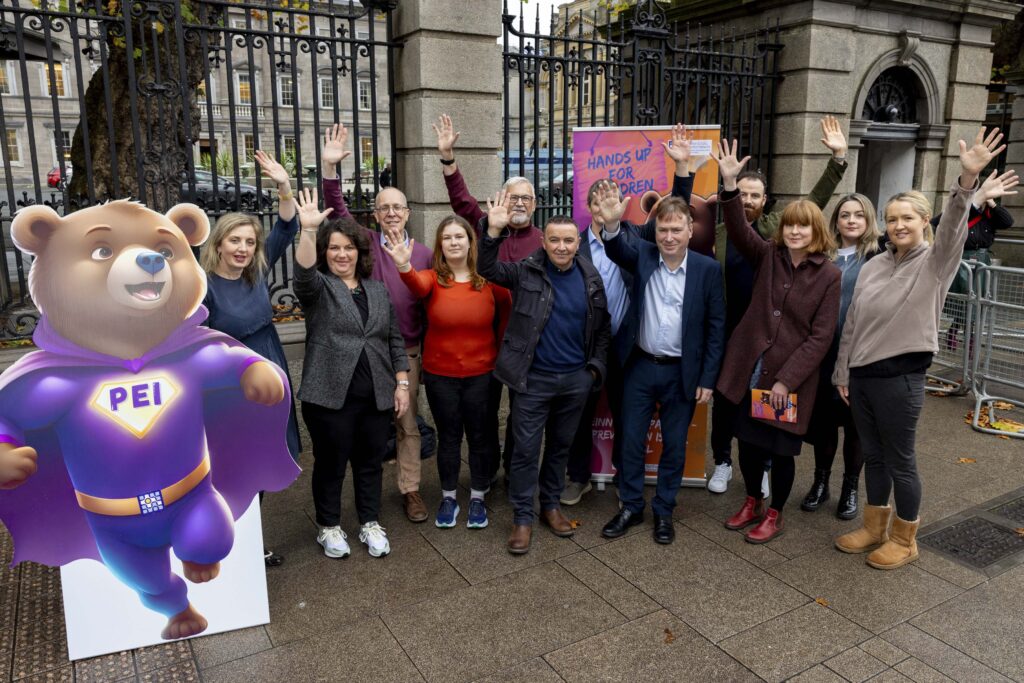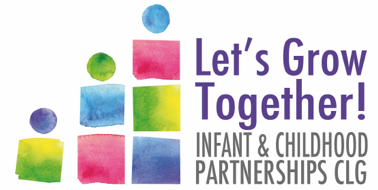Network launches mascot ‘PEINNY’ to champion prevention and early intervention


A network of 40 organisations supporting babies, children and families has called for spending on the prevention and early intervention to be grown by 10% annually by the next government.
The Prevention and Early Intervention Network (PEIN) has called for election candidates and parties to commit to funding of services being ring-fenced in budget 2025 – and grown by at least 10% annually from 2026 onwards.
PEIN also today launched a new mascot called PEINNY, as the colourful champion of it’s Hands up for Children election campaign.
The new hero of prevention and early intervention’s working slogan is: ‘PEINNY’S on patrol – prevention is our goal’.
PEIN Chairperson Katherine Harford (Executive Director of Let’s Grow Together! Infant & Childhood Partnerships, Cork) said the Network was delighted to launch PEINNY to front the Network’s Hands Up for Children election campaign.
She said that prevention and early intervention (PEI) is named in every national policy, and must become more than aspirational.
“We need our politicians and the new government to fully understand the need to ringfence resources for responsive supports and services that can be mobilised when difficulties arise in a child’s life.
“We are therefore calling on those who will become elected representatives to endorse the network’s Hands Up for Children election campaign, particularly during negotiations on the new Programme for Government.”
PEIN National Coordinator Dr. Maria O’Dwyer said: “At a policy level, government has set out a commendable ambition of making Ireland the best country in Europe to be a child. That can only ever happen when we see an end to long waiting lists for services during critical developmental windows, when children’s rights are protected without exception – and when we design services around children’s needs, rather than around what the system has to offer.”
Coalition of Tusla Funded Organisations Chairperson Marian Quinn said that staffing challenges must also be addressed in the next Government term: “The ever widening gap in salaries for our staff compared with Tusla counterparts is creating increasing difficulties in recruiting and retaining experienced staff, without whom we cannot deliver high quality services.
“In addition, many organisations must give time and energy to fundraising because government grants do not cover the full costs of the services. These issues must be addressed by the next government.”
PEIN’s Hands Up for Children election campaign also calls for:
- A single Government Department and Minister with the well-being of children and their families as their principal role
- A change of mindset within government policy to prioritising the prevention of problems for children and families
- A shared island dialogue for mutual learning and to explore the potential for cooperation on a North-South basis
- A minimum of 10% of the Future Ireland Fund to be ringfenced for the development of prevention and early intervention services.
To ensure delivery PEIN has recommended that a Working Group be established, including all relevant stakeholders, and reporting through the Department of An Taoiseach.
Quotes from parents
Chloe O’Riordan, whose daughter Haisley-Rae’s attends the Early Years service in Ballinacurra Weston, Limerick said: “Haisley-Rae had a tough time during her Dad’s cancer diagnosis and treatment. She had difficulty regulating her emotions so was referred for play therapy. She was two years on the waiting list before that therapy started. It felt like for those years we couldn’t meet her needs and for a parent, that’s an awful feeling.”
Mags O’Doherty, mother of A.J from Rathbane, Limerick said: “Hands Up for Children is a really important campaign for all children but especially for those, like my son A.J, who are lost in the system. At 14, he still doesn’t have a diagnosis even though we have been flagging concerns since he was three. A.J’s neurologist needs that diagnosis for clinical reasons and as his parents, we need it so we can support him the best way that we can. The waiting lists feel like a punishment for children and parents.”

